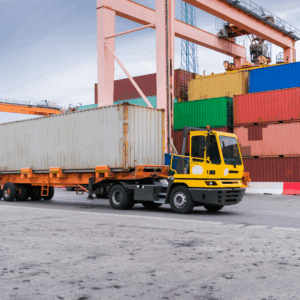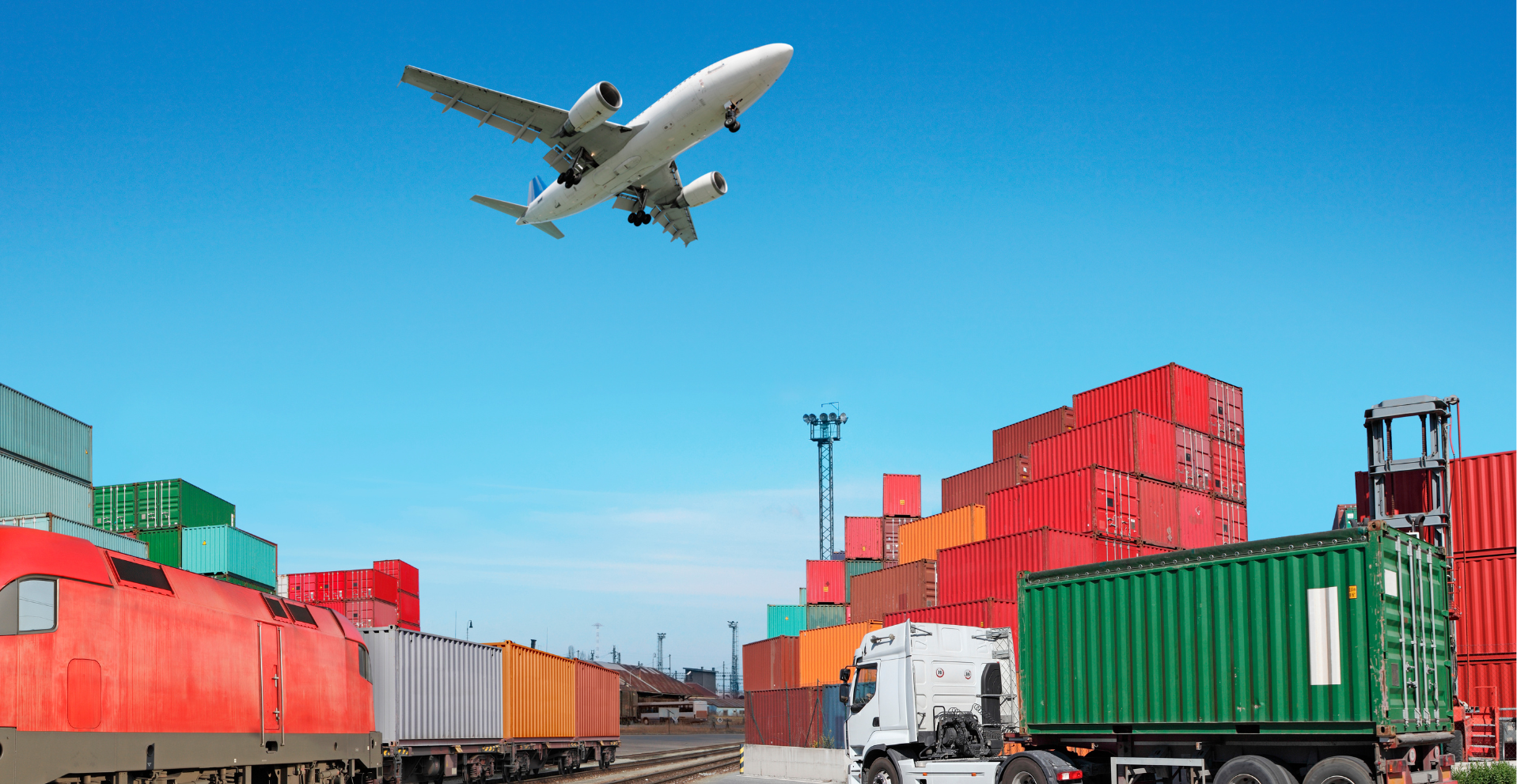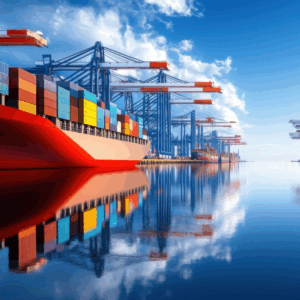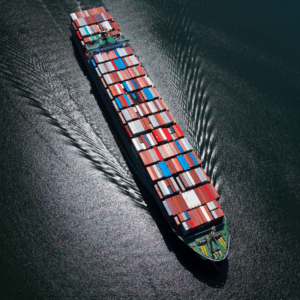In today’s dynamic logistics ecosystem, supply chain  Optimization, freight forwarding, and supply chain management are no longer optional strategies; they are imperatives for survival. Global shipping disruptions, volatile demand cycles, and increasing complexity in logistics networks are pressuring companies to adopt digital freight company models. This transformation is driven by freight technology tools that provide instant rates, online shipping quotes, and real-time visibility across the entire supply chain. Platforms like Exfresso by ExFreight represent a new generation of logistics optimization systems that integrate artificial intelligence (AI), machine learning (ML), and predictive analytics to empower freight forwarders and global logistics services providers.
Optimization, freight forwarding, and supply chain management are no longer optional strategies; they are imperatives for survival. Global shipping disruptions, volatile demand cycles, and increasing complexity in logistics networks are pressuring companies to adopt digital freight company models. This transformation is driven by freight technology tools that provide instant rates, online shipping quotes, and real-time visibility across the entire supply chain. Platforms like Exfresso by ExFreight represent a new generation of logistics optimization systems that integrate artificial intelligence (AI), machine learning (ML), and predictive analytics to empower freight forwarders and global logistics services providers.
These platforms not only automate workflows, but they transform them. They allow companies to move beyond traditional Transportation Management Systems (TMS) by incorporating functionalities like transportation cost calculation, LTL shipping, ocean freight, air freight, and international freight transportation into a single interface. As AI becomes a cornerstone of operational efficiency, those organizations not equipped with smart, connected logistics infrastructure will inevitably fall behind.
Why AI Is No Longer Optional in Freight Logistics
According to the internal report “La IA ya no es opcional,” AI has shifted from being a competitive advantage to a baseline requirement for logistics. AI automates repetitive tasks, identifies process inefficiencies, and makes real-time, data-driven decisions with high precision. However, the effectiveness of AI is entirely dependent on the quality of the data and the digital infrastructure behind it. Logistics companies that have invested in structured databases, clean APIs, and standardized processes are now reaping the benefits of predictive logistics.
These include anticipating supply chain disruptions, rerouting shipments dynamically, and adjusting warehouse operations in real time. The integration of freight technology into platforms like Exfresso enables real-time responses to customs changes, capacity shifts, and weather-related disruptions. Moreover, logistics management systems powered by AI can automate freight quote generation, minimize errors in documentation, and facilitate proactive compliance with international trade laws.
In practical terms, platforms like Exfresso pull live data from multiple sources—including ports, carriers, customs, and tariffs—and consolidate this into actionable logistics strategies. This allows freight forwarders to deliver higher service levels, lower costs, and adapt faster to the market, especially for complex formats like less than container load (LCL) and LTL shipping.
Insights from Research: Machine Learning in Supply Chain
The academic study published in the International Journal of Management Studies and Research provides deep insights into how machine learning improves logistics performance. The paper details the use of LSTM models (Long Short-Term Memory) in demand forecasting, inventory balancing, and resource planning. LSTM networks are specifically designed to learn from long-term sequences of data, which is essential in logistics, where seasonality, historical trends, and external variables must be considered.
The research also emphasizes the importance of anomaly detection for supply chain stability. Using ML, systems can detect irregularities in shipping times, customs processing, or warehouse activity before they evolve into full-blown disruptions. For example, if a delay is detected in a key port, platforms like Exfresso can proactively reroute cargo, allocate alternative resources, and notify all parties in the logistics chain in real time. This drastically reduces response time, improves resilience, and cuts costs.
By integrating these tools into everyday logistics management, forwarders no longer rely solely on human judgment or spreadsheet analysis; they operate using predictive models, real-time alerts, and dynamic optimization.
China: Strategic Player and Operational Challenge
China remains the epicenter of global freight and a test bed for international freight transportation innovation. From ports like Shanghai and Ningbo to massive inland production hubs, China dominates in volume and complexity. But this dominance also brings risk. As highlighted in recent updates, China has responded to U.S. tariff policies by imposing counter-tariffs on American-operated ships, increasing port charges, and adjusting maritime trade laws. This geopolitical tension creates volatility in freight shipping flows, impacting route planning, customs regulations, and delivery times.
For freight forwarders, managing exports and imports from China requires advanced platforms that go beyond basic quoting and booking. Exfresso, for instance, integrates real-time port data, customs policies, and alternative routing strategies. It supports full compliance with evolving Chinese regulations and minimizes costs through AI-powered suggestions for the best logistics network options.

How ExFreight Optimizes Real Freight Operations
ExFreight’s flagship platform, Exfresso, is designed to address real-world logistics challenges on a scale. Built with a distributed database, Exfresso connects data from customs, carriers, fuel trends, and port congestion into a unified command center for freight forwarding. The system supports full automation for air freight, ocean freight, LTL shipping, and LCL logistics, with visibility in over 150 countries and tailored compliance for each.
A unique feature of Exfresso is its transportation cost calculation engine. This tool factors in tariffs, fuel surcharges, terminal handling fees, and accessorial charges, giving users accurate landed cost projections from the quoting stage. This level of foresight is essential for companies managing global logistics services, particularly in complex markets like Asia, Europe, and the Americas.
Through robust API integration, ExFreight enables full system connectivity. Shippers can link Exfresso with their ERP systems, warehouse software, or ecommerce platforms, eliminating double-entry and manual reconciliation. As stated in the internal report, API integration is now essential for any logistics system operating with AI-driven tools. Without seamless data exchange, the benefits of automation and intelligence are lost.
Frequently Asked Questions (FAQs)
What is the Meaning of Freight Shipping?
Freight shipping refers to the movement of large quantities of goods via land, sea, or air. It includes formats like LTL shipping, FCL, LCL, ocean freight, and air freight. Freight shipping is a central process in the global supply chain and is managed by forwarders, carriers, and customs agents.
Who Pays for Freight Shipping?
Responsibility depends on Incoterms like FOB, CIF, or DDP. In B2B scenarios, the contract outlines who covers transport. For example, under FOB, the seller pays to the port; under CIF, they include insurance and freight. Buyers or sellers may bear costs depending on the agreement.
What Tools Help Reduce Shipping Costs?
Platforms like Exfresso help reduce shipping costs by automating quote comparisons, predicting delays, and optimizing routes using AI. This lowers the total cost of ownership and improves delivery reliability.
How Can I Get Online Shipping Quotes?
Through platforms like Exfresso, you can get online shipping quotes instantly for all transport modes. The system reflects real-time rates based on capacity, route, and current fuel costs.
Digital transformation is no longer a luxury in freight forwarding; it is a strategic necessity. The most effective tools for supply chain optimization combine machine learning, predictive routing, automation, and global connectivity. ExFreight’s Exfresso platform is a best-in-class example, helping freight companies manage complex, multi-modal shipments with confidence, accuracy, and efficiency.
By leveraging freight technology, digital freight forwarding, and AI-powered analytics, logistics providers can scale smarter, reduce transportation costs, and respond faster to global disruptions. Especially in volatile markets like China or during high-demand cycles, the ability to operate in real time and with complete visibility is what separates leaders from laggards in the supply chain.
If your business relies on global logistics, it’s time to adopt tools that empower action, not just reaction. Discover how ExFreight is building the future of freight—one optimized shipment at a time.





Leave A Comment
You must be logged in to post a comment.